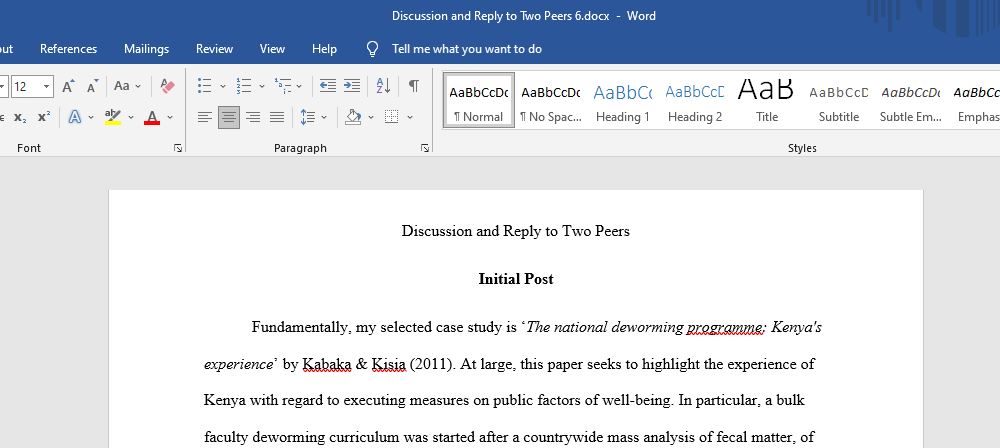This paper discusses a case study titled ‘The national deworming programme: Kenya’s experience’
Unit 2 Discussion
In this week’s discussion, the case study that I chose is about gender-race violence in the Pacific and the action on gender inequality as a social determinant of health. Gender inequality is prevalent in the Pacific island nation of Kiribati, and impacts health through the lack of food, violence against women, lack of decision making, and the lack of possibilities of improving life. They also have limited access to health care services as well. “A significant consequence of gender inequality is the high level of gender-based violence (GBV) women in Kiribati face, including sexual, emotional and/or physical violence perpetrated by intimate partners and non-partners (Rasanathan, J).” The research revealed an alarming prevalence of GBV in Kiribati. Women who had ever been in a relationship had experienced some form of violence; most had experienced controlling behavior from a male partner and 10% had faced violence from a non-partner. Survivors were more likely to report and reported poor health, emotional distress, and were more likely to attempt suicide. Qualitative research was also done to investigate the causes of GBV and attitudes men have towards women to later on form interventions. I believe that this study fits into the assessment and monitoring core public health function. This study assesses and monitors the health of the community and populations that are at risk which are the women in Kirigati and it also identifies the health problems with a focus on improving this issue. I also believe this study addresses the ten essential public health services.
World Conference on Social Determinants of Health. (2017, September 25). Retrieved January 15, 2021, from https://www.who.int/sdhconference/resources/case_studies/en/
Requirements: .doc file
Answer preview:
 word limit:515
word limit:515
